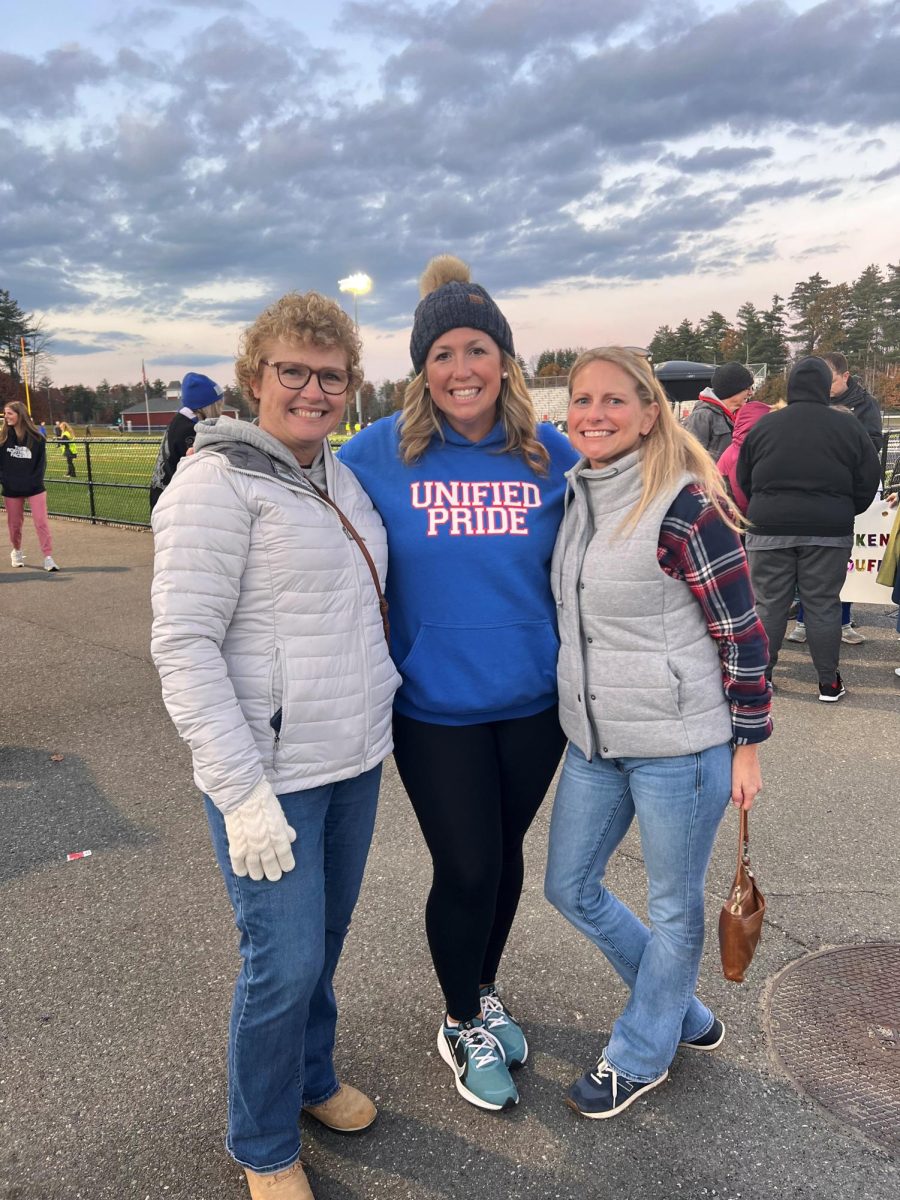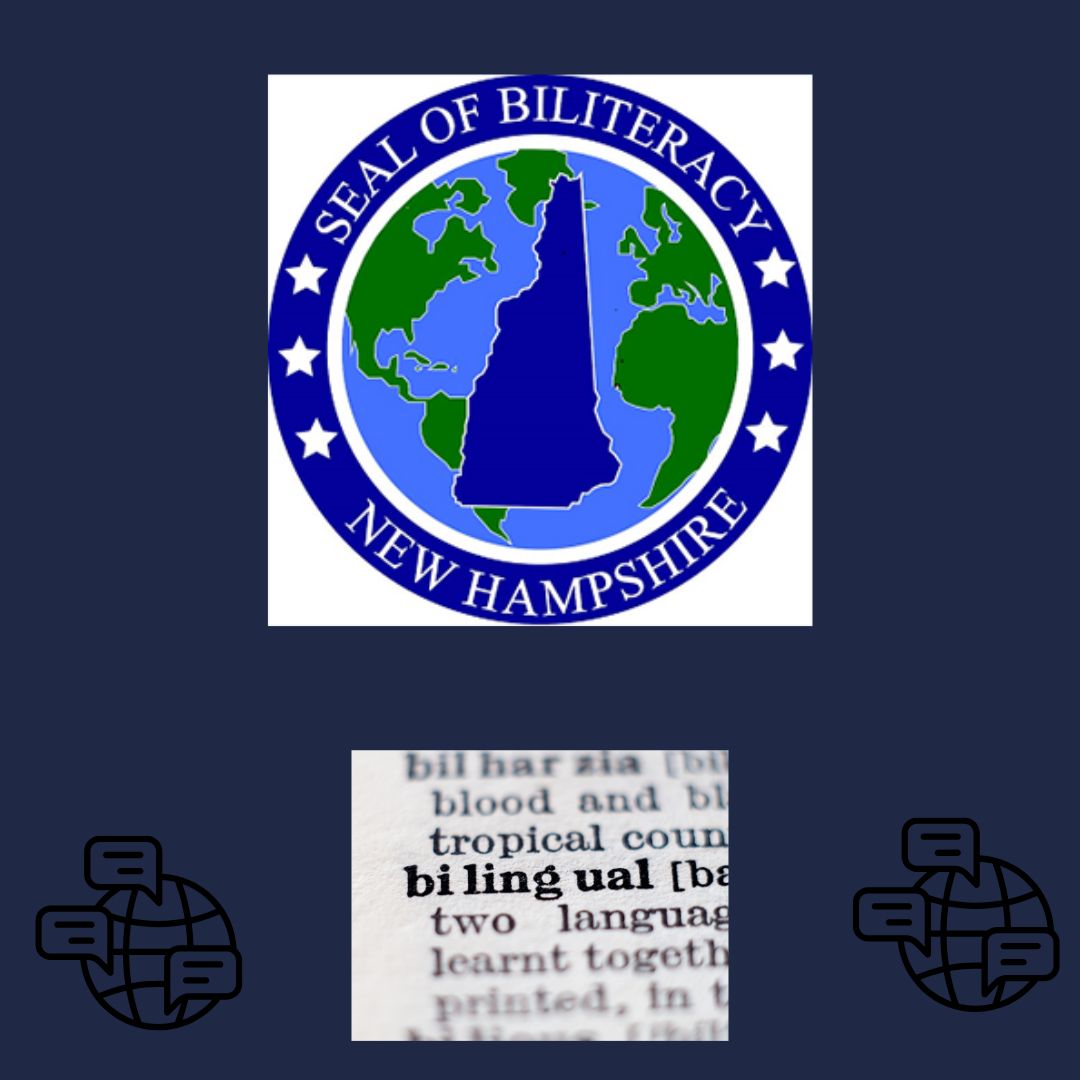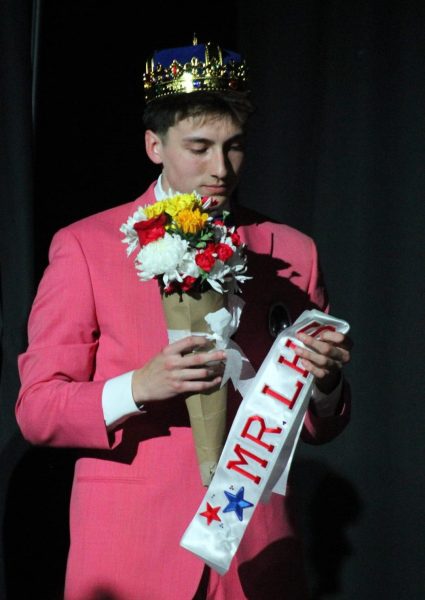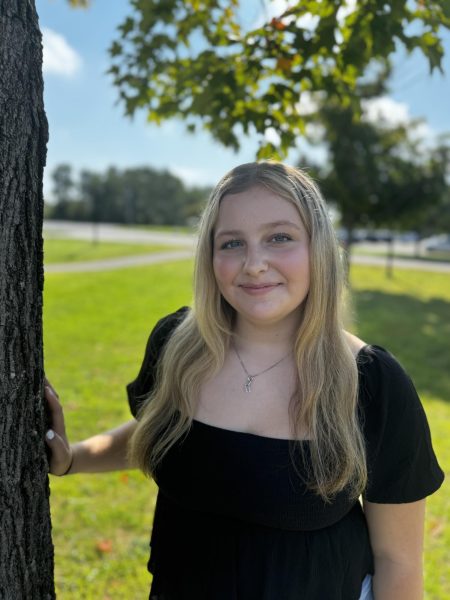When it all started
Kati Preston came from a small town in Hungary that was “not much bigger than Concord, [NH].”
“It was a very happy little town,” Preston said. “A civilized little town.”
Preston’s life quickly turned upside down when the Holocaust occurred. Jews were forced out of their homes into ghettos with little to none of their belongings.
“I looked out the window and outside in the street there were carts, trucks, and soldiers with green uniforms and black feathers in their hats,” Preston said. “They had bayonets and whips and were pulling people out of their houses and putting them on these vehicles.”
Preston’s father was Jewish and was forced into a ghetto. Her mother didn’t have Jewish blood so she was allowed to stay at home. Preston’s mother decided to put her in hiding because it was very dangerous outside, and she didn’t want to lose her daughter.
“People were stumbling and falling and getting kicked,” Preston said. “It was very brutal, very noisy. Suddenly everybody was taken away, and then there was silence.”
Going into hiding
Elizabeth, the orphan who received a wedding dress from Preston’s mom years before, knocked on her door and offered to take Preston and hide her at her house because she told them the soldiers would not look there. Preston’s mom was weary of handing away her daughter, but said yes because she wanted the best for her. Elizabeth took Preston to her home and hid her in her barn.
“She took me up these rickety stairs and it started getting dark,” Preston said.“It was smelly, there were big black spiders everywhere, and there was rustling in the hay. I was stuck in that barn for three months, totally alone. I wasn’t allowed to play with anybody because she was afraid someone would find something and figure out I was there.”
Preston obediently followed the rules and lived quietly in the barn, entertaining herself by playing in the hay and with the spiders. One day she heard a lot of commotion and looked outside the barn to see Elizabeth in danger. Somehow the officers were told she was hiding there.
“I see three soldiers and they are slapping [Elizabeth] around and she’s bleeding from the nose and they are hitting her,” Preston said.
The soldiers tore through the whole house looking for the little girl. They were going to give up and leave when they noticed the barn and decided to look there.
“I pulled a lot of hay over my head and I made myself really small,” Preston said. “I was holding my breath and I shut my eyes really tight. They were using their bayonets to poke and stab the hay here and there. They got closer and closer and suddenly I opened an eye and there was a boot right next to me, a big black boot, and the bayonet came down an inch from my face and it got stuck in the wood.”
The bayonet got really stuck, which aggravated the soldier because he had trouble getting it out of the wood. This anger caused him to give up the search for Preston and leave.
“Miraculously they gave up,” Preston said. “They couldn’t find [me] and they left. And that’s when I realized what it means to die. I remember being absolutely paralyzed with fear. I made no sound, and I couldn’t breathe. I just froze.”
That was the day her “golden childhood” ended. That day was when that little girl realized reality is not “all that pretty.”
“It was hard for a child to understand this level of hatred,” Preston said. “I still have a hard time understanding this prejudice or racism of any sort because I don’t see a difference. We are all people.”
Her father tried to say goodbye
Preston’s mother was able to get Preston’s father smuggled out of the ghetto. Her mother urged him to walk across the border into Romania so he could escape, but he insisted on going to where Preston was hidden and saying goodbye to her.
“He told [my mother] he wouldn’t leave without saying goodbye to me,” Preston said. “Because we were so close, he didn’t want me to feel he was abandoning me. He wanted to come and tell me it’s the war, and in about a year we will see each other again.”
Sadly, her father got caught on the way to Elizabeth’s farm and he was put on a train to Auschwitz, the largest concentration camp and extermination center. Later on, he died after brutally getting beat by SS guards for taking an extra ration of bread for his starving stomach. He suffered for two days and a night before dying from his injuries.
“I still feel guilty about this,” Preston said. “If he wasn’t such a great father, if he didn’t love me so much, he might’ve escaped and had a normal life. He might not have had the sad ending that he had.”
Returning home
After three months in hiding, Preston was finally able to return home. Her mom picked her up, and together they traveled back to Preston’s childhood home.
“We went home and I was so happy,” Preston said, “but I didn’t realize that there was no electricity. There was no food, it was cold, and there were air raids every hour.”
Due to the lack of resources, Preston went long periods of time without eating food.
“There was nothing to eat,” Preston said. “We were absolutely famished. This hunger takes over your whole life. All you can think about is being hungry. It was painful to be hungry.”
Soon after that, trains were arriving at the train station with rescued slaves from the concentration camps. Preston and her mother were very excited, and they went to the train station, looking for her dad.
“We went to the railroad station, and the trains came in. We held up a picture of him and asked people [if they had seen him],” Preston said. “The trains emptied and [my dad wasn’t there]. We went home crying, holding hands.”
They didn’t give up and they came back the next day. Sadly, they couldn’t find him that day either, and Kati saw the horrible conditions people were in.
“The people who came off the trains scared me,” Preston said. “They didn’t look human. They were in rags and had no hair. You couldn’t tell if they were men or women and they didn’t walk, they shuffled, and they smelled bad.”
Her mother started taking all those people to her house and bathing them, giving her clothes to the women and her husband’s to the men. These people were all over her house, talking with one another and sharing stories.
“I was listening to all the horror stories about the concentration camps and I started getting very scared about my [father] because I thought if all these people had all these things happen to them, what happened to him?” Preston said.
The next day, Preston and her mom went back to the train station, but this time, they found out they will never find him.
“A man came up to us and said ‘don’t wait for him, he’s dead…I saw his body, don’t wait for him,’” Preston said.
Dealing with the trauma
She was able to leave Elizabeth’s farm, but that didn’t mean she was able to leave her trauma with it. Preston found a way to not only help her PTSD but also spread awareness of this awful homicide.
“I used to have nightmares, but since I’ve been speaking [about my experiences to larger groups of people] in the last fifteen years, they’re gone,” Preston said. “This is therapy, it truly is. It’s amazing that I don’t have nightmares.”
The losses Preston endured
Not only did Preston lose her father that day, she also realized she was losing her mother.
“This woman, who was always a very happy person full of laughter, stopped laughing after that,” Preston said. “She still smiled, and she occasionally had a little giggle, but that deep laughter was gone.”
Trying to understand that level of hate is something Preston has tried to figure out for a very long time. She has lost so many family members she didn’t get the chance to know.
“I’m the only one alive out of my family and I feel bad,” Preston said. “I hardly knew them. I vaguely remember them now. I would have liked to know them. When other people have family reunions, I really envy them because if I had a family reunion, I’d be the only one there.”
In spite of all of this, she has found it in her heart to stop hating the persecutors who turned her, and millions of others’, lives upside down.
“It took me fifty years to stop hating,” Preston said. “I don’t hate anymore. Absolutely not, because when your heart is full of hatred, there’s no room for anything else.”
Preston learned the importance of “accepting the past and moving forward.” If her heart was still full of hate, Preston would have never been able to love her grandchild, who is half German.
“I remember holding their little baby daughter in my arms,” Preston said. “I was crying so hard because I’m holding a beautiful baby who’s a grandchild of a victim and their perpetrator and it’s the perfect child. And that’s how life has to be, we have to go on. We are all so similar, if only people would accept that. If you open your mind and your heart and you know who everyone else is, everybody is very similar.”
Visit https://www.katipreston.com/ if you would like to learn more.


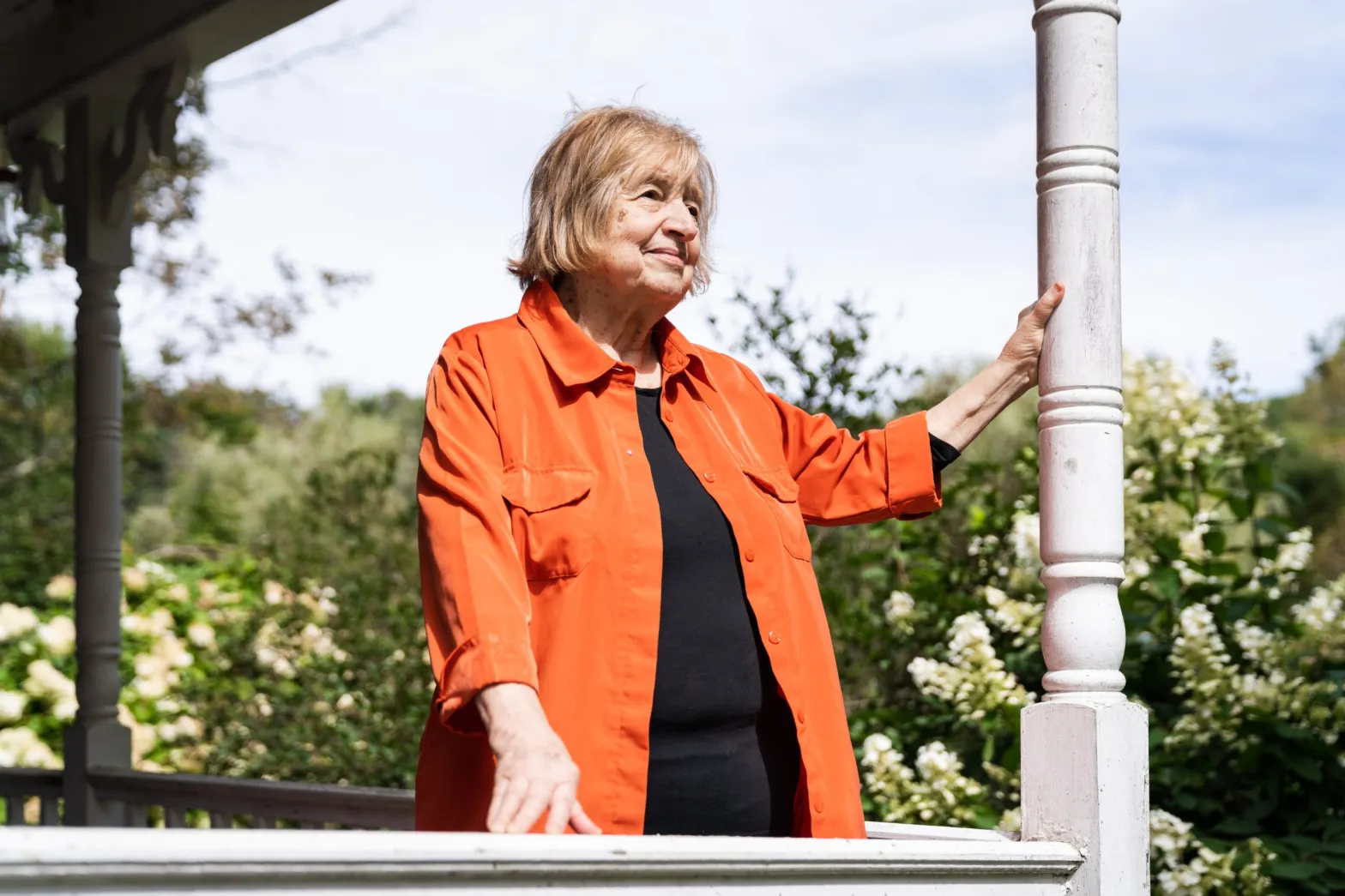


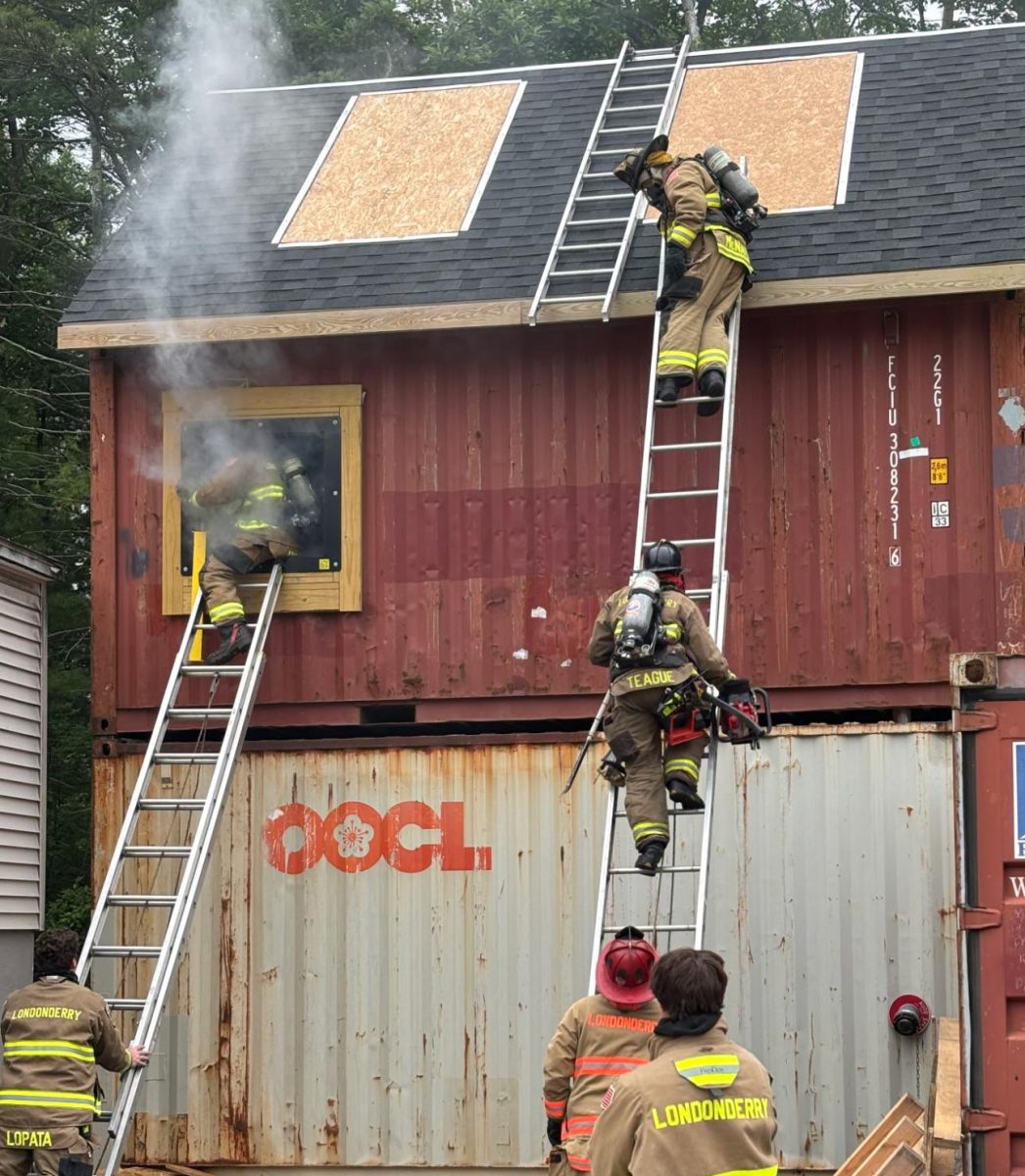
![Carol Ritchie helps one of her students through a computer assignment during A period. Ritchie has taught students basic English with activities to help them get a better grasp of concepts. problem-solving skills in her classroom. “I try to make the class fun and find [activities] that interest them,” Ritchie said.A banner of the world map and flags hangs near ESOL teacher Ms. Ritchie’s desk. (Image made in Canva by Kelsey Sweet).](https://www.lancerspiritonline.com/wp-content/uploads/2025/06/Light-Green-Featured-Jewelry-Instagram-Post.jpg)
